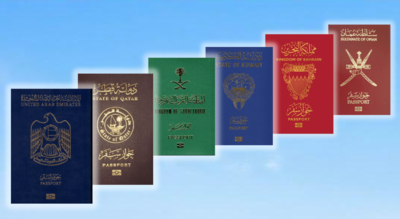
The Gulf region is witnessing a surge in global mobility prowess, with significant advancements in passport strength among GCC nations. The United Arab Emirates has secured the 8th rank globally, while Qatar has achieved US visa-free access. Notably, Saudi Arabia, Kuwait, Bahrain, and Oman are also making steady progress in enhancing their global mobility.
The GCC nations received a landmark boost when China granted visa-free entry to all six countries in the region in 2025. This move not only strengthens regional influence but also fosters deeper ties between the Gulf and Asia.
Passport Rankings:
The UAE now holds the 8th position worldwide, offering visa-free or visa-on-arrival access to an impressive 184 destinations. This ranking places the UAE at the forefront in the Arab and Islamic world, showcasing its robust passport strength.
Qatar has climbed to the 47th spot in the global rankings, driven by its participation in the US Visa Waiver Program. This significant milestone makes Qatar the first Arab nation to be part of the program, granting its citizens access to 112 destinations.
Saudi Arabia stands at 54th place, securing visa-free entry to key countries like China, the UK, and Turkey, totaling 91 destinations. The kingdom’s continuous efforts in improving its passport strength have been instrumental in its upward trajectory.
Kuwait maintains the 50th rank globally with access to 100 destinations. However, the country experienced limited mobility growth in 2025 due to the absence of major new bilateral agreements.
Regional Diplomatic Impact:
The Gulf Cooperation Council (GCC) has successfully leveraged passport strength as a tool for soft power and diplomacy. The July 2025 Henley Passport Index illustrates the remarkable rise in global mobility among GCC states.
The UAE, Qatar, and Saudi Arabia have strategically expanded their global mobility through bilateral visa deals and citizenship reforms, showcasing their commitment to enhancing international relations.
This surge in passport power not only signifies national ambition but also aligns with the growing global emphasis on mobility and interconnected economies, bolstering the region’s diplomatic prominence.



